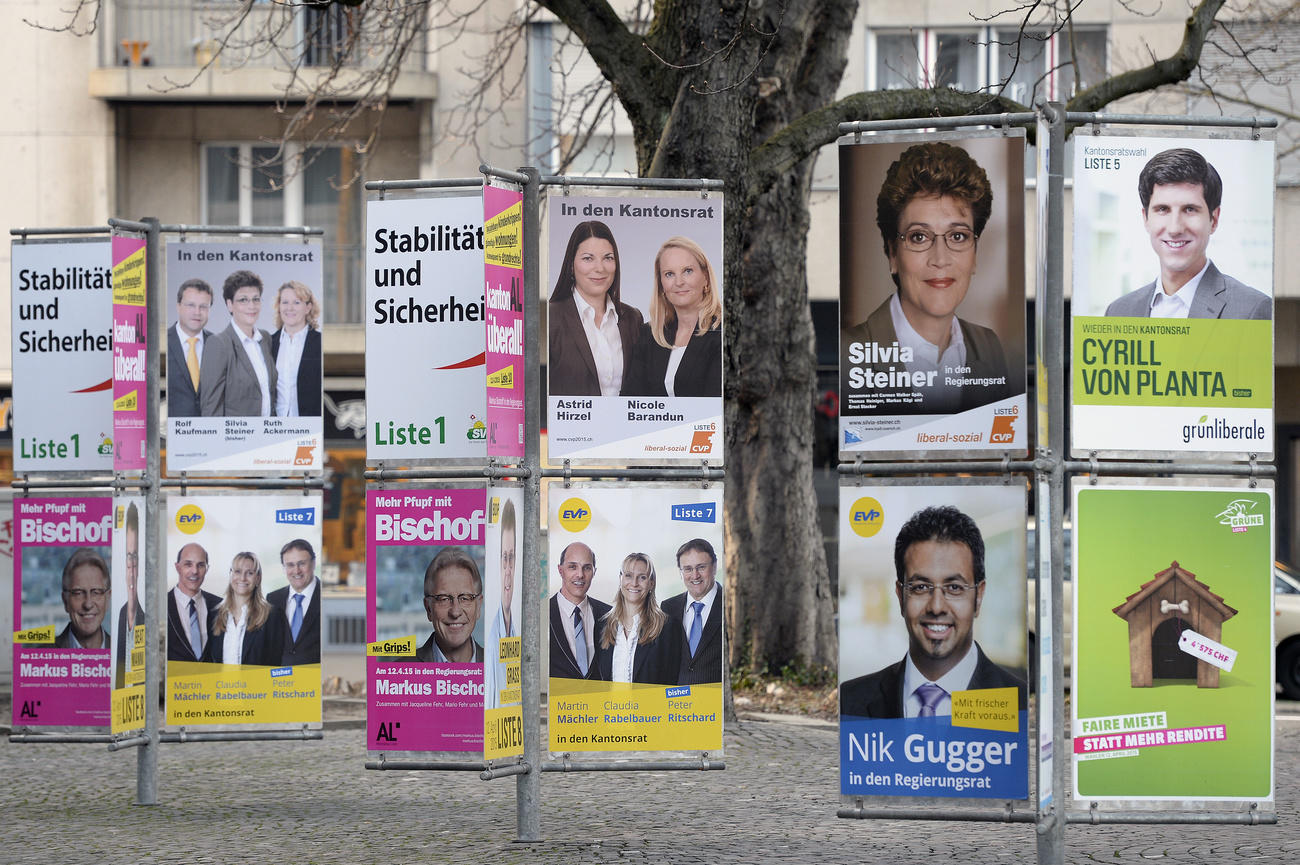
Switzerland criticised over opaque political financing

A top Council of Europe anti-corruption official has called on Switzerland to strengthen laws on transparency of political financing in the lead up to the October 20 parliamentary elections.
In an interview with swissinfo.ch, Gianluca Esposito, the executive secretary of the Council of Europe’s Group of States against Corruption (GRECO) acknowledged progress in recent months but said the country hasn’t gone far enough to address secrecy in financing of political parties and election campaigns.
Switzerland is the only country among the 47 Council of Europe member states that has not adopted a law on the financing of political parties, something Esposito regrets.
swissinfo.ch: As in previous elections, no political party plans to reveal their budget or the names of their supporters ahead of the upcoming parliamentary elections. What is your reaction to this?
Gianluca Esposito: This is not fully compliant with the Council of Europe standards. Our recommendation to Switzerland is very simple: it needs to put in place regulations to ensure reasonable transparency and control over the funding of political parties and election campaigns, whether there is public funding or not.
GRECO has fairly clear rulesExternal link that have been approved by the states themselves, including Switzerland.

swissinfo.ch:Why do you think Switzerland has been slow to adopt such regulations?
G.E.: The question must be put to the Swiss authorities. We have been waiting for these reforms for eight years. Our recommendations are not specific to Switzerland; we have made similar recommendations to other GRECO member states, when necessary.
swissinfo.ch:Will you consider sanctions?
G.E.: GRECO does not adopt sanctions and, personally, I don’t believe that sanctions serve much purpose. For reforms to work in any country, they need to come from within. I don’t believe in externally imposed reforms.
In extreme cases, as was recently the case with BelarusExternal link, GRECO may adopt a public declaration of non-compliance with our standards, which has significant political, economic and reputational consequences.
We are very far from this situation in the case of Switzerland. On the contrary, we see signs that the country is headed in the right direction, with the draft amendmentExternal link and the popular initiativeExternal link on transparency in political financing.
swissinfo.ch: In addition to the initiative and the counter proposal mentioned, five cantons have already adopted rules for more transparency in the financing of political parties. In your view, are the tides turning?
G.E.:I am optimistic. All of these initiatives are headed in the right direction. More and more people in all member states want to know how political parties are financed, how money is spent, and so on. To me, this is very normal. I hope Switzerland will comply with European standards very soon.
swissinfo.ch:Does this mean that you are going to relieve some of the pressure on Switzerland?
G.E.: GRECO adopted a compliance report on Switzerland on the issue last June. The report is not yet public because Switzerland has not authorized its publication, so I am not at liberty to go into details. However, I can tell you that Switzerland is no longer in our non-conformance process. We continue to follow developments closely and we expect another update from the Swiss authorities in June 2020.
swissinfo.ch:Nevertheless, does the lack of transparency undermine the reputation of Switzerland’s democracy, which it happily promotes as a model for the rest of the world?
G.E.: Switzerland has a long tradition of parliamentary democracy and direct democracy. Transparency in the financing of political activities is a crucial issue in a country like Switzerland where, in the absence of direct public funding, political parties, election campaigns and popular voting campaigns depend heavily, if not entirely, on private financial resources.
At the moment, the federal law doesn’t include any provisions governing the financing of political parties. Five cantons have already established laws on the subject: Fribourg, Neuchâtel, Schwyz, Ticino and Geneva.
In the face of a systematic refusal by the majority of the right-wing party in parliament, the left, backed by small centrist parties, put forward a popular initiative to bring more transparency in political financing. The initiative calls for political parties to make public the amount and origin of donations of more than CHF10,000 or campaign expenses exceeding CHF100,000.
In early May, the Senate Commission on Political Institutions of the Senate prepared a counter-proposal, which raises the threshold to CHF25,000 per year for donations and CHF250,000 for campaigns. The two main far right parties oppose both the initiative and the counter proposal.
You can contact the author of this article on Twitter: @samueljabergExternal link
Adapted from French by Jessica Davis Plüss

In compliance with the JTI standards
More: SWI swissinfo.ch certified by the Journalism Trust Initiative
































You can find an overview of ongoing debates with our journalists here . Please join us!
If you want to start a conversation about a topic raised in this article or want to report factual errors, email us at english@swissinfo.ch.